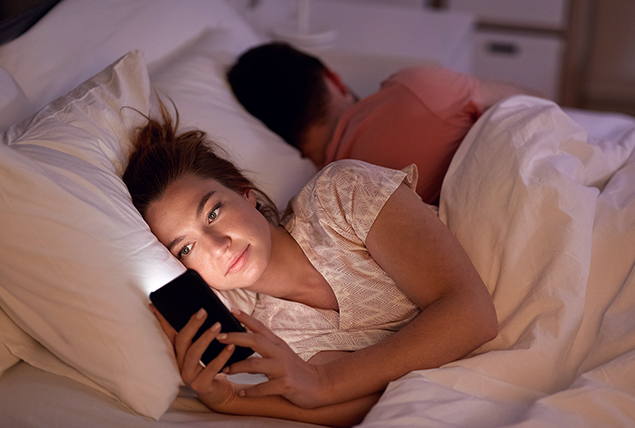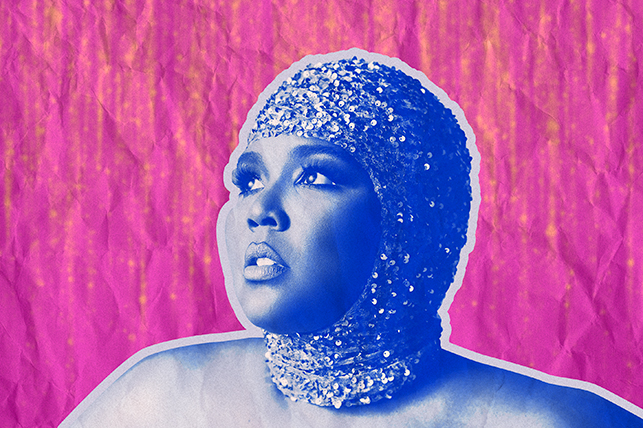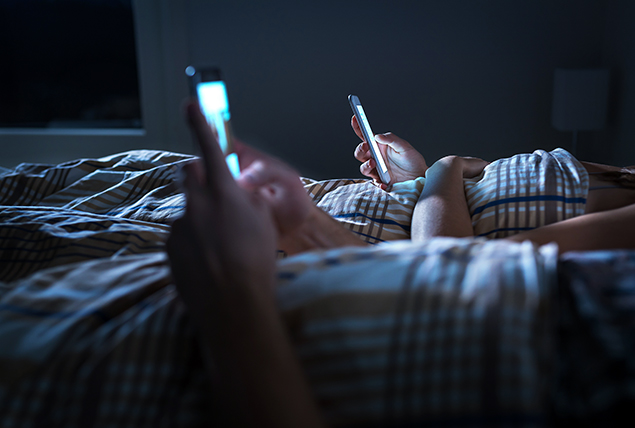Is the Social Media Age Killing Female Orgasms?

As of January 2023, 59 percent of the global population is on social media. Its effects are varied and far-reaching, ultimately shaping our perceptions and social lives offline in unconscious ways.
Recent research suggests a link between heavy social media use and sexual dysfunction in women, but how do we know social media is to blame? What is it about excess scrolling that can kill your sex life?
What happens to my body image?
Negative body image is a pervasive issue among women, particularly young women, and it seems that social media is busy stoking the flames of self-doubt. One 2022 study published in BMC Women's Health interviewed 24 girls ages 14 to 17, asking questions pertaining to social media and body image in an attempt to understand the link between the two. An overwhelming number of participants confirmed that social media more often prompts a negative self-image rather than inspiring confidence.
The reasons mostly come down to comparisons and validation. Comparing their bodies to photos of celebrities or even classmates, or not getting enough approval for a photo make it easy for some girls to become disillusioned with their size or shape.
"Spending a lot of time on social media can sometimes lead us to engage in more social comparisons that make us feel worse about ourselves and how we look," explained Justin Lehmiller, Ph.D., a research fellow at the Kinsey Institute in Bloomington, Indiana, and host of the "Sex and Psychology Podcast." "To the extent that social media use contributes to negative body image, that could be one potential path to increased sexual dysfunction."
Self-doubt and negative body image make it more difficult to be vulnerable and feel comfortable expressing yourself sexually, which in turn can bring orgasm difficulties.
How is intimacy affected?
In some cases, social media can cause a lack of intimacy and connection for partners in monogamous relationships, which can lead to sexual dysfunction.
A 2019 study tracking social media addiction and sexual dysfunction among Iranian women found excessive social media use directly and indirectly contributed to female sexual dysfunction, mostly as a result of a lack of perceived intimacy and support.
Healthy sex with a long-term partner is built on trust and intimacy, and when a social media binge gets in the way of a partner's needs, it can result in a lack of sexual interest, potentially leading to dysfunction, according to Thomas Murray, Ph.D., who is the author of "Making Nice With Naughty: An Intimacy Guide for the Rule-Following, Organized, Perfectionist, Practical and Color-Within-the-Lines Types."
"I'm aware of a lot of couples where one or both partners spend too much time on social media at the expense of attending to the needs of their partner and/or the relationship," Murray said.
He explained that sexual dysfunction can be an indirect result of social media use, as is any excessive distraction to a partnership. The less connected you feel to your partner, the less inclined you are to invite or accept a sexual invitation.
It's important to remember that excessive social media use can also be the result of an already unsatisfying relationship or even sexual dysfunction, Murray said.
"Correlation isn't causation. Social media use may be related to interpersonal distress," he said. "The more distressed one is within their relationship, the more they might engage in social media.
"Phones, TV, pets, etcetera, have no place in the bedroom, especially when they're distractions," Murray added.
In general, maintaining a healthy, active sex life requires being present with your partner. If you find yourself struggling to orgasm or even to find the urge to have sex, dismiss any and all distractions that can affect your mood or prevent you from connecting.
What happens to my mood?
One 2022 study had 536 women and 194 men complete assessments of sexual function and problematic social media use and found the affected women struggled with lower sexual arousal, trouble lubricating and having orgasms, and sexual dissatisfaction.
One of the researchers, Rui Miguel Costa, of the William James Center for Research at ISPA Instituto Universitário in Portugal, spoke to PsyPost in July 2022.
"It is beneficial to reduce the use of social media if it often interferes with daily activities, work, sleep, personal relationships or face-to-face social interactions, more generally," Costa said in the report. "It is also beneficial to reduce the use of social media, or at least change the pattern of use, if social media often elicit negative emotions, like anger, envy, disappointment, loneliness or a sense of estrangement. These are possible processes by which social media worsen mood and sexual function."
Costa added that more research is needed to truly understand the correlation.
"Research has found connections between excessive social media use and mood disorder symptomatology, such as depression," Lehmiller said. "What's not entirely clear is whether depression prompts people to spend more time on social media, whether high levels of social media use cause depression, or whether it's a bit of both. But given that high social media use and depression are confounded, it makes sense that there's a link to sexual dysfunction because depression, and many depression treatments, can potentially cause sexual difficulties."
Mood has the ability to influence your body as well as perspective. There's absolutely no guarantee that limiting your social media time can cure sexual dysfunction. But social media can influence your perception of sex and yourself, so maybe make an effort to understand how much time you give to social media and how it makes you feel.


















